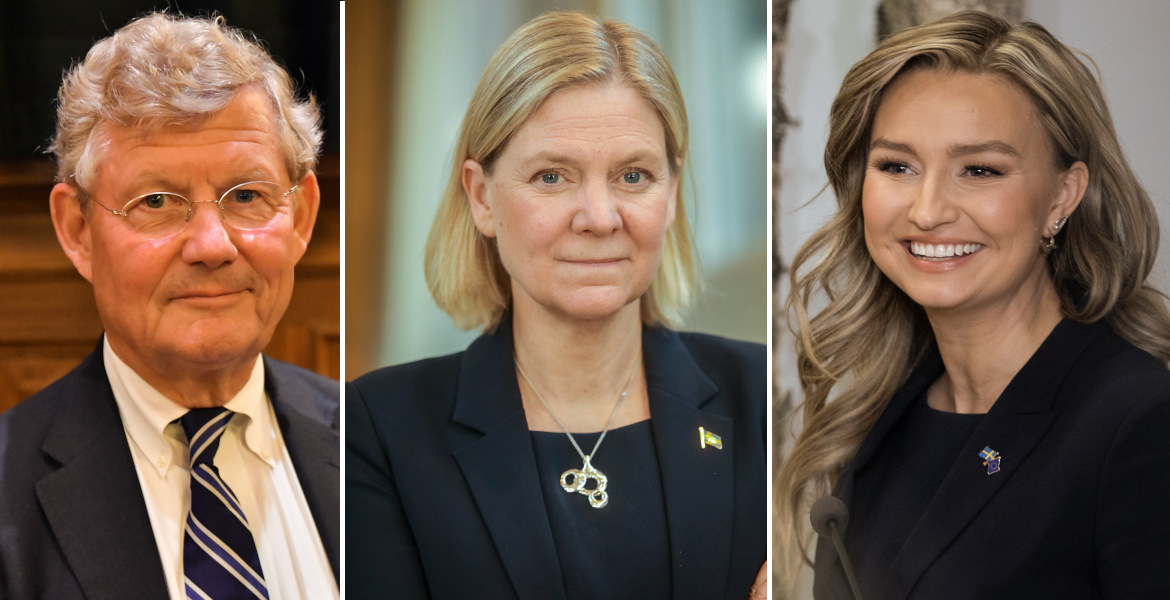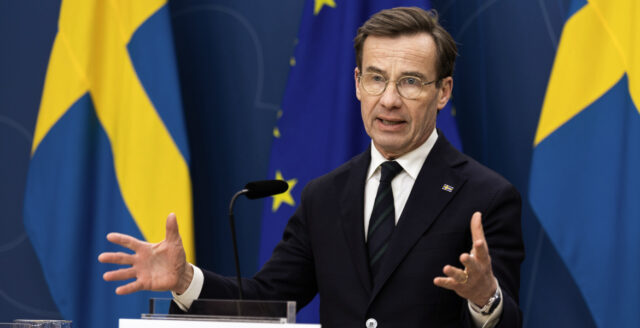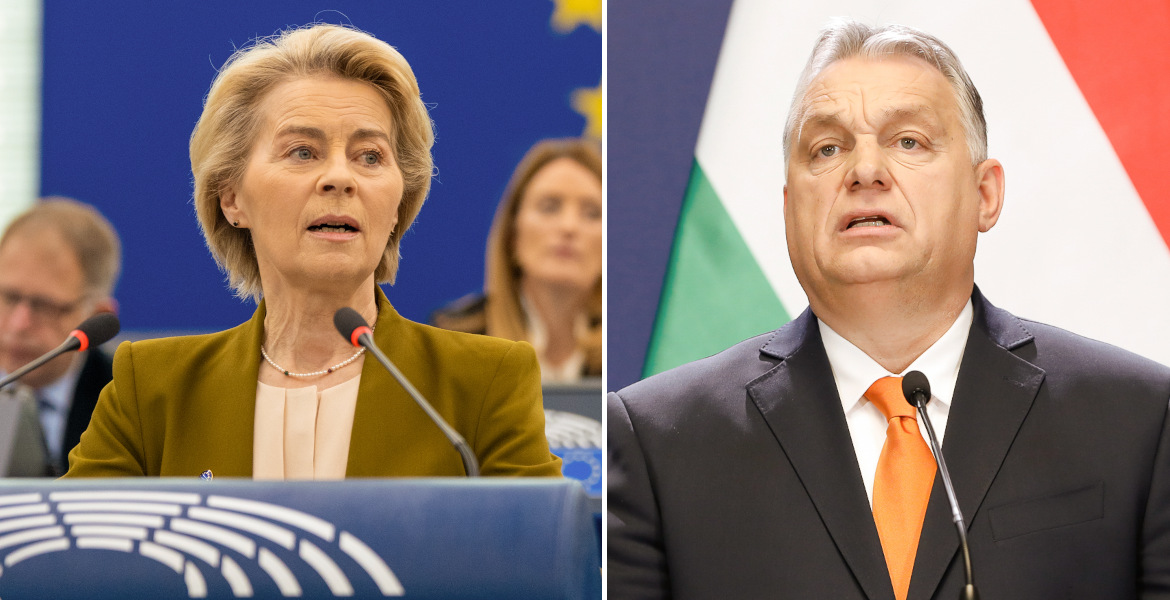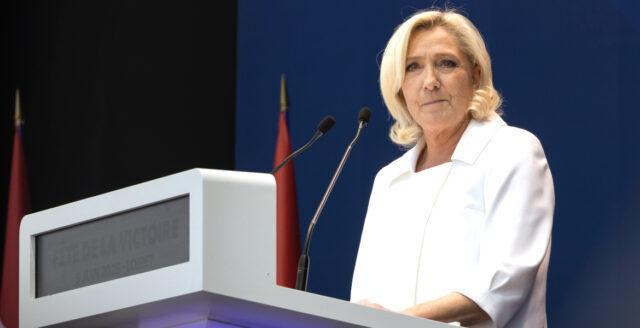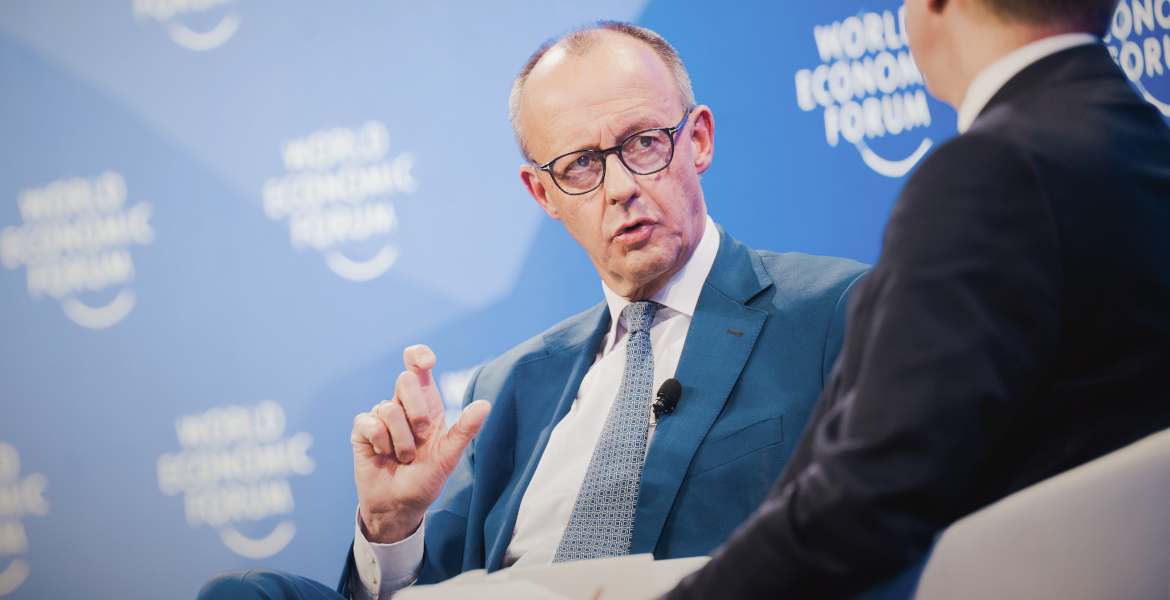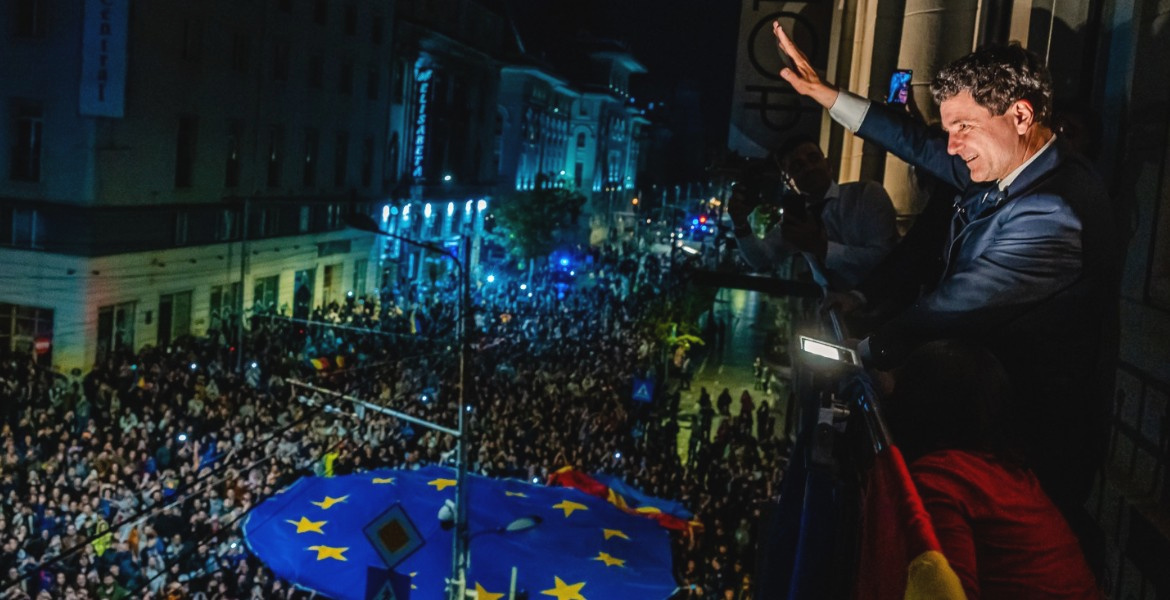On March 11, 2020, the World Health Organization (WHO) declared that the spread of COVID-19 had developed into a pandemic. The reactions had consequences for the entire world’s population. In an exciting and well-written book Ph. D. Jacob Nordangård shows how the past year’s corona related drama is part of a pattern in which a vision of a world domination emerged as early as in the beginning of the 20th century. The Global Coup is extremely well documented. To help those who want to know more about these interesting and important events, there is a huge list of sources and an extensive list of references.
The League of Nations (LON) was a loosely composed project between the nations of the world. It was intended to be the embryo of a world government. Among LON’s stakeholders were the founders of the Rockefeller and Carnegie Foundations. However, the LON never became a force to be reckoned with. In 1945, it was replaced by the United Nations (UN) with the United States in the lead, and the land for the New York headquarters was donated by John D. Rockefeller Jr. According to the image that was conveyed around the world, the UN could save the world from the threatening atomic bomb. But within Rockefeller’s think tank The Trilateral Commission, the main interest was to make internationalism more accepted and to erode the self-determination of nations. The real goal was to create a world organization that all nations would obey.
With the help of advanced technology and in partnership with other powerful actors, including the Club of Rome, the UN would build a peaceful and harmonious world and realize the grandiose utopia of a world domination. The support of the people would be secured through a strategy that can be followed to this day: An image is created of a worldwide deadly threat to humanity. The media collaborates to whip up a strong fear and a doomsday mood. The global elite is ready with a new and technologically advanced solution to ward off the threat. The rescue, of course, comes at a price, but governments and the people are frightened and willing to pay. The logic is crystal clear but treacherous: if the solution is implemented, it will be the salvation that people through intimidation have been prompted to demand, and it will be affirmed in a democratic order. At the same time as the gains of the global elite are enormous, the lives of millions of ordinary people will be shattered. It is not the problems that are terrible, but the solutions.
For the project of a world domination to succeed, it was not enough to propagate for the UN. People must also feel that their own security and survival depended on a world constitution. This is where the global threats come in. Three major areas of threat were identified: the climate (carbon dioxide), global health (pandemics) and nuclear weapons. In addition, overpopulation, environmental pollution, terrorism, economic crises as well as refugee and migrant flows were listed.
In the late 1980s, the climate took over after the atomic bomb as the leading threat. Climate research received strong support from the Rockefeller Foundation. The environmental pollution, which is close to the climate threat, aroused a strong commitment early on. At a rapid pace, several organizations emerged, not infrequently under royal protection, including the World Wildlife Fund (WWF) with Prince Bernhard of the Netherlands on the board, the Club of Rome, Greenpeace, and the Brundtland Commission. Gro Harlem Brundtland was a member of the think tank The Trilateral Commission, and as the founder of the Bilderberg Group Prince Bernhard also belonged to the Rockefeller sphere.
In 1992, the first UN Rio Conference on the Environment took place. There it was informed that outdated views on national sovereignty would be discarded, and that the Security Council would take control of the world’s natural resources as well as declare that not all races and peoples are equal. In 2012, the UN’s second environmental conference was held in Rio de Janeiro, where new pervasive global goals were adopted.
As early as 1948, the WHO was founded within the framework of the UN. Threat of contagion is one of the most effective means of achieving radical societal changes. The Black Death of the 14th century is the most fatal pandemic to date. In modern times, the Spanish flu killed 50 million people and 32 million died of AIDS. The Rockefeller Foundation was from the beginning the main financier of the international health work. But since the turn of the millennium, the main financial responsibility has increasingly been shouldered by the Bill & Melinda Gates Foundation. Concerns about an economic crisis, as well as the general fear of jihadist terrorism, reinforced the realization created by the worldwide threats to climate and health, namely that nuclear proliferation, energy, and climate change required international solutions.
On September 25, 2015, UN member states signed Agenda 2030 with 17 global sustainability goals. According to the UN, the goals will mean a total transformation of all aspects of human life. They are formulated to gain broad support from the Member States and their populations. Who does not want to save the earth and create justice and security for all? However, it turned out that the leading actors (UN, G20, EU and the World Economic Forum) in practice interpreted the wording in the interests of the largest global organizations and multinational companies. The World Economic Forum (WEF) brings together the world’s richest and most powerful, those who shape the agenda on the global stage. Among the members are Bill Gates, the vaccine alliance GAVI, the World Bank, WHO, Google, Huawei, Mastercard, Microsoft – you name them. Members can order both problems and solutions to increase demand for their companies’ services and products.
Four months later, WEF President Klaus Schwab announced that the fourth industrial revolution had begun. It is a revolution with the goal of bringing people together with the technology to create a highly efficient society, based on supervision and control. At the WEF’s annual meeting in Davos the following month, the book Fourth Industrial Revolution was released. It describes how all of humanity’s problems will be solved with the help of the new technology that WEF’s world-leading business partners are working to develop. Both man and nature are seen in the book as objects that can be changed to perfection through the application of technology. Ultimately, technological development, according to the book’s author, will “challenge our notion of what it means to be human.” The profits of the global technology giants are enormous. A technology researcher writes: “We do not have to fear that robots will take over after us because there will be no ‘us’ to take over from. . . we will have become one with our machines.”
On June 13, 2019, a partnership was signed between WEF and the UN. Despite its enormous implications for humanity, the agreement was barely noted in the media. The power over our lives had now been transferred to the global corporations. The purpose of the partnership is to accelerate the UN’s sustainability agenda and the 17 global goals in Agenda 2030 “to build a more prosperous and fairer future“. (Klaus Schwab)
The idea for the global climate strike with Greta Thunberg as the big poster name was hatched in May 2015 during the Global Youth Summit conference in Tutzing, Germany. Using children and young people to make the public positive about the goals of Agenda 2030 was considered by the conference organizers, the Plant for Planet Foundation, and the UN Environment Program UNEP to be an effective tactic. It would seem heartless not to listen to the young people’s appeal for their future. Several international youth strikes and marches for the climate were organized. But they lacked someone who could be the movement’s face to the outside world – until Bo Thorén from the divestment movement Fossil Free attracted attention to Greta Thunberg via her mother, the opera singer Malena Ernman. Greta took up Thorén’s proposal for a school strike. On her first day of strike, Swedish evening newspaper Aftonbladet was present, and Greta was picked up directly by the waiting global elite.
International climate work was accelerated and conferences, books, reports, and plans – Earth Strike, the Green New Deal, the Green Deal for Europe, the Global Green Fund, the Global Marshall Plan and more – appeared at a rapid pace. What strikes you, apart from the high pace, is that the same actors are to a large extent driving in the different contexts.
On September 29, 2019, a climate emergency was declared by the European Parliament. This meant that the EU would be carbon neutral by 2050 and that payments to the Global Green Fund would double.
At the WEF’s Davos meeting on January 21, 2020, the connection between on the one hand, the fourth Industrial Revolution and on the other hand, the climate threat, the sustainability goals, and the European Green Deal, became very clear. Ahead of the meeting, a report was released that provided a detailed overview of how the new advanced technology of the fourth industrial revolution would contribute to meeting each of the UN’s 17 global goals.
Now only a triggering event was needed to start the process in earnest.
Of great importance for the public’s acceptance of a more controlled world was a course of events that in early 2020 sent “waves of shock” through society: On January 24, 2020, the WEF had announced that it had entered into partnerships with selected biotechnology and medicine companies to develop a vaccine against COVID-19, which had been identified in China. On January 30, 2020, the WHO declared an international health emergency. On March 11, 2020, the WHO declared COVID-19 a pandemic. It was the starting point for countries around the world, to introduce more or less ruthless measures to reduce the spread of infection. This by referring to a virus that in terms of death rates can be compared to a moderate seasonal flu. Everything went very fast now.
At the beginning of April, more than half of the world’s population was in lockdown and totalitarian forces saw their chance to seize the opportunity to take a tougher grip on their populations. Many countries took the opportunity to impose restrictions on citizens’ freedoms and rights that can be activated and reintroduced whenever a new infection appears to be spreading. In Denmark, for example, a crisis law was passed on compulsory vaccination.
The corona crisis meant a golden opportunity to start collecting the population’s health data and, with the help of AI and mobile data, analyze people’s movement patterns, contacts, and obedience to the new injunctions. The fear of climate change was replaced in one fell swoop by another invisible threat. A report by the WEF concluded that “the impact on society can be as profound as that after the Black Death of 1348.” The pandemic provided new opportunities to quickly test the technology of the fourth industrial revolution and create the world one wanted. The development of a vaccine became a major priority for the G20, which also emphasized the importance of using digital solutions and AI to combat COVID-19.
After a few months of extreme measures, where societies were shut down and authoritarian rules of control were introduced worldwide, in June 2020 the WEF offered a solution to all problems. In the book “The Great Reset”, which was released in June 2020, a new system was presented not only to fight the virus but also to transform the whole society. Digitization was the backbone of the world to come, which was planned to be artificial. Due to the corona crisis, digital development had in one month taken a step that would otherwise have taken two years. Pretty much everything had been moved online. The technology companies were the big winners, while all business ideas (for example in the cultural sector) based on personal meetings were losers. In addition, the crisis had entailed major intrusions into people’s privacy, and mass surveillance would soon be possible. Robots and AI would replace human labor. Contact tracking would enable “early intervention” against “super-infectious environments” such as family gatherings. The book shows that a global techno-totalitarian surveillance state is being built, with the coronavirus as an excuse.
Under the leadership of Rockefeller and Bill Gates, the UN, the WEF, several foundations and Big Tech companies formed an association called ID2020. The aim was to create a long-term sustainable identification system for use on a large scale by 2030. In the technocratic smart society, run by the WEF to support the UN’s goals for sustainable development, digital passports will be required not only to access basic human services such as healthcare, e-commerce, financial services, and social platforms, but also for virtually all social activities. This development has been anticipated by WEF in its vision for the fourth industrial revolution. In the coming decade, smart technology will be integrated with our bodies for, among other things, behavioral monitoring, and identification in real time.
Opposition to this global system, which is already beginning to materialize, is likely to weaken as a new generation with a more positive attitude towards new technology emerges. But all over the world, more and more people are starting to wake up and realize that what was previously perceived as improbable conspiracy theories is actually happening. It is high time to create a counterforce.
The population of each country must influence its government to look primarily to the future of its own country, not to give in to the global elite operating through the UN and the EU. In the last two years, the Swedish government has on at least two occasions betrayed its people by – without a mandate – sneaking through agreements that are very destructive for Sweden’s future: In December 2019, the UN migration framework was signed in Marrakesh and in December 2020 in Brussels was approved the EU’s “Recovery aid” of EUR 47.5 billion. The consequences of the agreements will affect future generations.
The Global Coup ends with an appeal: “Now it is crucial that we ordinary people can unite and meet at a very critical time. This is not about the right – left or about gender, age, religion, ethnic group or anything else, but about seven billion people against an extremely small elite that has got total hubris and is completely open with wanting to control the entire earth system and everything in it. /. . . / We owe it to our children and grandchildren not to allow this.”
Ingrid Björkman
The article was previously published on Invandring & Mörkläggning
The Global Coup (2020) by Jacob Nordangård is published by Pharos publishing house and can be ordered here.
Hans Holmén, associate professor of cultural geography and economic geography, writes the following about the book:
The word "coup" probably associates most people with a sudden, violent takeover, with tanks around government buildings, arrests, purges of dissidents, takeover of media channels and so on. But that does not always have to be the case.
The coup plotters can also seize (totalitarian) power without violence, in a completely legal way, with the consent of the people or even enthusiasm - even in a democracy. There may be many "existential" threats (terrorism, environmental degradation, climate threats, refugee crisis, pandemics) that we need to be "saved" from through firmer and more centralised governance.
Nor does domination need to be initiated in one fell swoop, it can creep up on us gradually. Despite the fact that the signs are always there, few choose to see them - as long as the coup is carefully prepared so that the coup makers are widely heard and acknowledged by appearing as "the rescuers in need" or because there do not seem to be any alternatives.
Succeeding in the coup requires purposeful long-term work, a well-oiled propaganda apparatus and waiting for the right opportunity. Once the coup takes place, however, the takeover can take place fairly quickly.
Once citizens discover what has happened, it may be too late to do anything about it. If this happens in an individual country, it is bad enough. When it happens at the supranational level, there is nowhere to flee and no one to seek help from.
This is exactly what is happening in the midst of us, right here and right now. Jacob Nordangård's urgent book describes the process, reveals the methods and identifies the actors.



